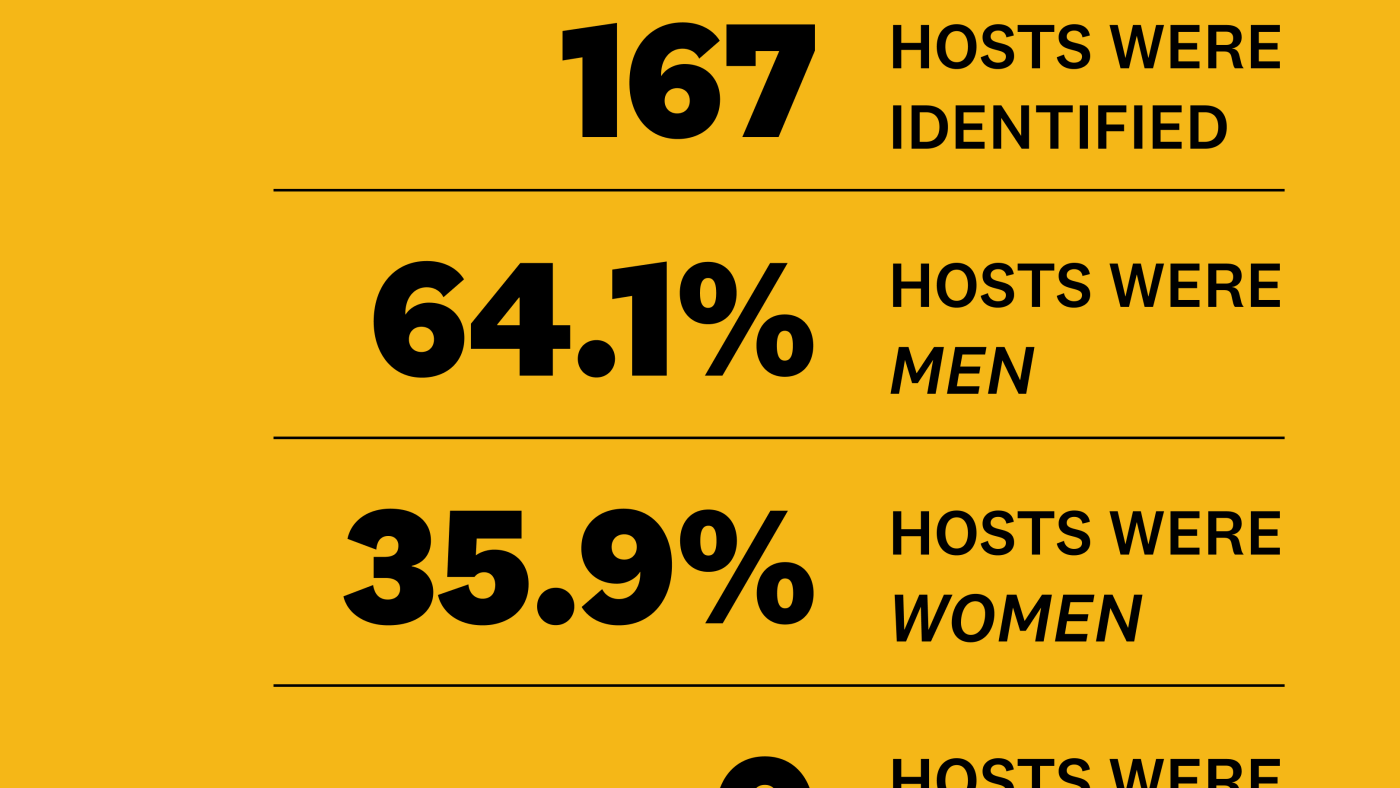
The Grinnell Regional Medical Center in Iowa has seen a sharp increase in births since a neighboring rural hospital stopped delivering babies. For more than a year, the hospital has been trying to hire two doctors who can do obstetrics. Natalie Krebs/Iowa Public Radio hide caption
toggle caption
Natalie Krebs/Iowa Public Radio
Jonna Quinn was initially thrilled when she got her first job after residency, working as an OB-GYN in Mason City, Iowa. It was just an hour down the road from her hometown of West Bend, where she grew up on a farm.
But the hospital started restricting certain birth control options and fertility treatments based on its affiliation with the Catholic church, she said. At the same time, her unit was becoming increasingly short-staffed as other obstetricians left and retired.
At one point, Quinn said she was seeing up to 50 patients a day.
"That is twice what a normal OB-GYN will see in a day," she said. "I knew I was going to miss something, because there's no way somebody can function at that level."
Last spring, Quinn decided to leave -- not just Mason City, but Iowa entirely.
At the time, the state supreme court was on the verge of approving a law banning abortion as early as six weeks of pregnancy, with very few exceptions.
It was the last straw for Quinn, who got a job in Minnesota and moved her family there. Minnesota has constitutional protections for abortion.
"I could either stay and ruin myself and my career and my mental health and my relationship with my children, or I could go and continue to practice OB, which had always been my dream," she said.
A few months after Quinn moved away, Iowa's abortion ban went into effect on July 29, 2024.
Iowa's severe shortage of obstetricians
After the Supreme Court overturned Roe v. Wade in 2022, multiple states, including Iowa, enacted abortion bans — despite already facing shortages of OB-GYNs.
The laws have put doctors under increasing strain and surveillance, complicating the standard medical treatments for miscarriage, ectopic pregnancy, premature membrane rupture, and other pregnancy problems. Some physicians fear these laws could drive these much-needed doctors from certain states and dissuade other OB-GYNs from moving in and establishing a practice.

The Grinnell Regional Medical Center is expanding its maternity unit amid a sudden growth in deliveries following the closure of another neighboring rural hospital's obstetrics unit. Natalie Krebs/Iowa Public Radio hide caption
toggle caption
Natalie Krebs/Iowa Public Radio
Iowa has the lowest number of OB-GYNs per capita in the country, according to a KFF analysis of 2021-2022 federal data from the Health Resources and Services Administration.
Studies show that insufficient maternity care is linked to low birthweight and increased infant and maternal mortality.
As doctors leave, more stress on those who remain
Rural hospitals in Iowa have been struggling to find more OB-GYNs.
The Grinnell Regional Medical Center, a 49-bed hospital in a rural college town, has been trying to recruit an OB-GYN, and a family practice doctor with obstetrical training, for more than a year.
The hospital has seen a dramatic jump in deliveries after a neighboring hospital shuttered its labor and delivery unit last year. The additional number of deliveries has been stressful for its two existing obstetrical-unit doctors, according to David-Paul Cavazos, an executive with the center.
Back when patient volume was lower, it was easier for doctors to be on call over the weekend, he explained.
"You just kind of had to hang out at home, be by the phone," he said. But recently the on-call doctors have been delivering "five babies on Saturday, six babies on Sunday," Cavazos said. "It becomes more stressful."
The Iowa legislature passed a bill last session that increased Medicaid reimbursement rates for maternity care, so OB-GYNs could be paid more for caring for pregnant patients.
The new law also directs federal funding towards a project to set up additional medical residency slots, including OB-GYN residency slots, in Iowa. Medical residents tend to stay and set up practices in states where they complete their residency.
These things could help, said Karla Solheim, chair of the Iowa section of the American College of Obstetricians and Gynecologists. But the state's abortion restrictions are still a red flag for some OB/GYNs when deciding whether to practice in Iowa, she said.
"They understandably do not want to put their licenses and their livelihood at risk when it comes to taking care of patients," said Solheim.
At her previous job in Quad Cities, Solheim performed an abortion on a patient who had life-threatening complications, she said. It spurred many phone calls from hospital administrators
They peppered her with questions about her decision, Solheim recalled: "Did I have enough evidence? Was her blood count low enough that her life was in danger? Should we have waited until her blood pressure got lower?"
Solheim recently stopped delivering babies to focus on gynecology and outpatient care, saying she had become exhausted working in Iowa hospital units that didn't have enough obstetricians.
Recent data on residency applications show that state abortion bans may be influencing the next generation of doctors.
Fewer medical students are applying to OB-GYN residency programs in states that restrict or ban abortion, according to a data analysis from the Association of American Medical Colleges.
For E., a fourth-year medical student in Iowa, the law is weighing heavily on her decision of where to apply for OB-GYN residency, and ultimately practice. She worries about how Iowa's law will affect her ability to practice evidence-based care.
E. is her middle initial – she asked to be identified that way because she's concerned her comments could negatively affect her future career options.
"I'm seriously questioning whether Iowa is a state that I want to practice in, in the long term, and it breaks my heart because I know that there is such a need," she said.
Research presents a mixed picture
It's still unclear whether abortion bans are driving doctors out-of-state.
One recent study in Idaho found that two years after the state enacted its highly-restrictive abortion law, 35 percent of the state's 268 OB-GYNs had stopped practicing obstetrics.
But another study, analyzing federal data two years after the 2022 Dobbs decision, failed to find significant departures of OB-GYNs from states with abortion bans.
"We were surprised, and we cut the data in every possible way that we could," said Becky Staiger, an assistant professor at the University of California, Berkeley's School of Public Health, and the study's lead author.
While numbers don't show a systemic exit, it's possible some of these OB-GYNs could be adapting how they practice so they can stay with their patients, she said.
"We've heard anecdotally, and through qualitative research, that they're really highly committed to those patients," Staiger said.
She said the analysis also doesn't capture how OB-GYNs feel about working in states with abortion restrictions.
"What we can't observe is anything about the quality of care that the providers are able to provide, about provider satisfaction with job, about provider safety," Staiger said.
This story comes from NPR's health reporting partnership with Iowa Public Radio and KFF Health News.

 3 months ago
56
3 months ago
56

















































